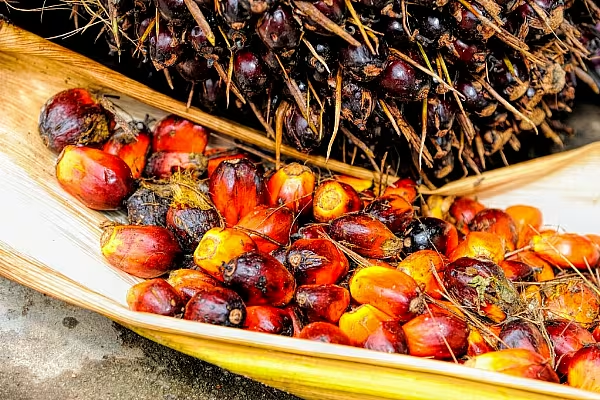Palm oil stockpiles in Malaysia probably fell for the first time since June after production in the world’s second-largest supplier slumped to a 10-month low.
Inventories fell 5.2 per cent to 2.76 million metric tons in December from a month earlier, according to the median of ten estimates in a Bloomberg survey of planters, traders and analysts. Production slid 18 per cent to 1.36 million tons, the lowest since February, while exports fell six per cent to 1.41 million tons, the survey showed. The Malaysian Palm Oil Board will release official data by 11 January.
A seasonal decline in production in the coming months may help further trim stockpiles and counter sluggish demand from buyers including China and India. Futures capped their best performance since 2010 last year as the worst El Nino in almost two decades threatens crops in Southeast Asia.
“We’re just seeing the beginning of the low-crop season and we expect production to continue to drop in January and February,” said Ben Santoso, an analyst at DBS Bank Ltd. in Singapore. “Prices have already moved up. It’s already reflecting the anticipated drop in production especially in the first quarter.
The decline in output may be further exacerbated by monsoon flooding in some parts of Peninsular Malaysia last month and the impact of dry weather in early 2015, according to CIMB Investment Bank Bhd. The bank expects crude palm oil futures to rally 14 percent this year to average 2,450 ringgit a ton as supplies tighten, while Macquarie Group Ltd. sees prices climbing 18 percent.
The economic slowdown in China and weakening crude oil prices may still hurt demand for the vegetable oil used used in everything from instant noodles to shampoo and for blending in biodiesel.
“Physical demand is still very weak at the moment,” said David Ng, derivatives specialist at Phillip Futures Sdn Bhd. in Kuala Lumpur. “Usually, China starts loading up a few weeks before the Lunar New Year, but we don’t see this happening at all.”
News by Bloomberg, edited by ESM. To subscribe to ESM: The European Supermarket Magazine, click here.














